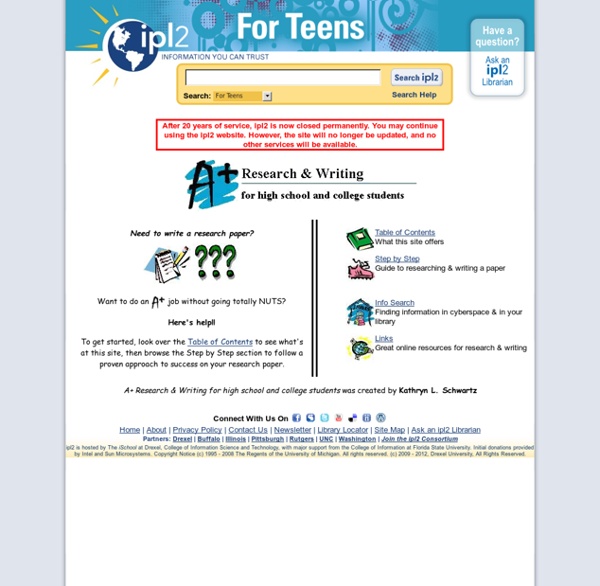



Research Papers Summary: This handout provides detailed information about how to write research papers including discussing research papers as a genre, choosing topics, and finding sources. Contributors:Jack Raymond Baker, Allen BrizeeLast Edited: 2013-02-21 10:38:50 The research paper There will come a time in most students' careers when they are assigned a research paper. Such an assignment often creates a great deal of unneeded anxiety in the student, which may result in procrastination and a feeling of confusion and inadequacy. MLA Formatting and Style Guide Coming Soon: A new look for our same great content! We're working hard this summer on a redesign of the Purdue OWL. Worry not! Our navigation menu and content will remain largely the same. Summary: Plagiarism Tutorial: Test Your Knowledge Plagiarism is a serious academic offense! The University of Southern Mississippi's undergraduate and graduate bulletins both include statements about plagiarism: "When cheating is discovered, the faculty member may give the student an F on the work involved or in the course. If further disciplinary action is deemed appropriate, the undergraduate student should be reported to the Dean of Students. A graduate student should be reported to the Dean of the Graduate School."
Copyright-Friendly Toolkit However fabulous Creative Commons and Public Domain content may be, sometimes you really need to use copyrighted material. Say you plan to comment on popular media or current events. For instance, you may be planning to critique the portrayal of Native Americans in commercial films. You are going to want to “quote” some commercial films like Pocahontas, Lone Ranger, and Dances with Wolves. If you are reviewing a book, you may want to share its cover art.
Plagiarism What is Plagiarism and Why is it Important? In college courses, we are continually engaged with other people’s ideas: we read them in texts, hear them in lecture, discuss them in class, and incorporate them into our own writing. As a result, it is very important that we give credit where it is due. Plagiarism is using others’ ideas and words without clearly acknowledging the source of that information. How Can Students Avoid Plagiarism?
Clustering Engine Carrot2 Search Results Clustering Engine Carrot2 organizes your search results into topics. With an instant overview of what's available, you will quickly find what you're looking for. Choose where to search: Type your query: EasyBib: Free Bibliography Generator - MLA, APA, Chicago citation styles